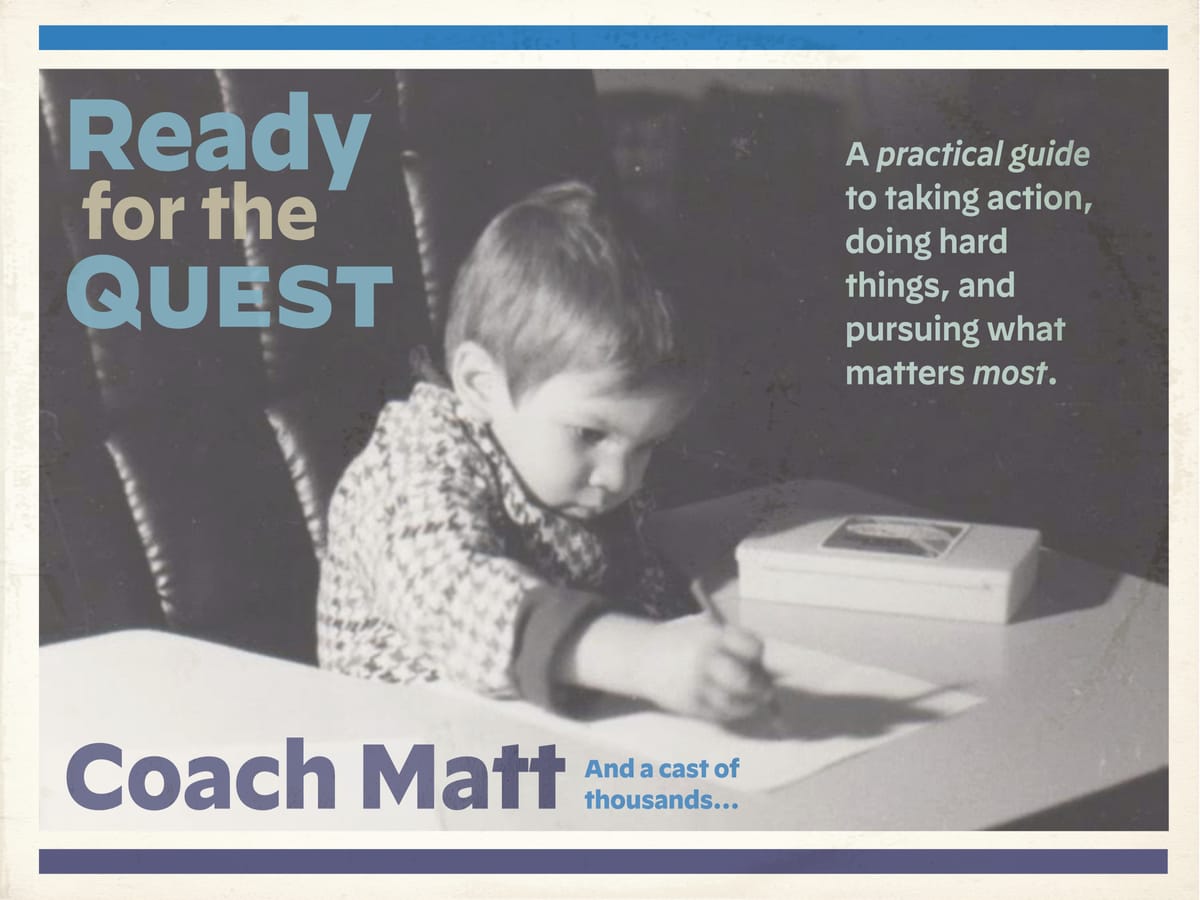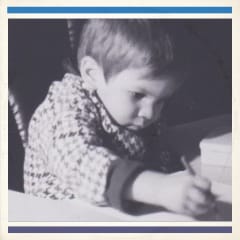Ready for the Quest
NOTES // Chapter Four, part 2
00:20 // 🎵 music
Some of the music in this chapter was made using an instrument called a wave distributor (in fact, it's this one) that was on a shelf at the home of Margo (see Chapter One notes) the Maltipoo in Yellow Springs, Ohio.
From the Gongs Unlimited website:
The interval of a fifth is the most harmonious interval: two vibrations of the lower tone equal exactly three vibrations of the upper tone creating an extremely relaxing tonal combination. These vibrations are felt when grasping the handle, but the tones remain unaffected.
I had great fun playing with it for about an hour and then putting the recording into Ableton. Some of the sounds I left unchanged, some I processed heavily, and a bunch of it ended up in the soundscape of the book, mostly in this chapterG but also elsewhere.
(It was heard previously during the story about the Columbus Voices Workshop in Chapter Three.)
00:21 // "We are cultivating the quality of patience..."
Here's Whitney Thomas Eads reading the first of several pieces in this chapter from Wherever You Go, There You Are by Jon Kabat-Zinn.
If you're wondering about mindfulness, I'm not sure you can do better than this book. Kabat-Zinn is a kind and straight-talking companion. He suggests simple and small experiments along the way. He makes the. fuzzy concept of mindfulness tangible and helps you understand its use in so-called everyday life.
I first read the book while sitting on the deck or walking through the meadow at a magical place called Chimaingo, in Granville, Ohio. This was thanks to my friend Christian. There were several dogs around, including my beloved Beckett. Oh, and there was a pond!
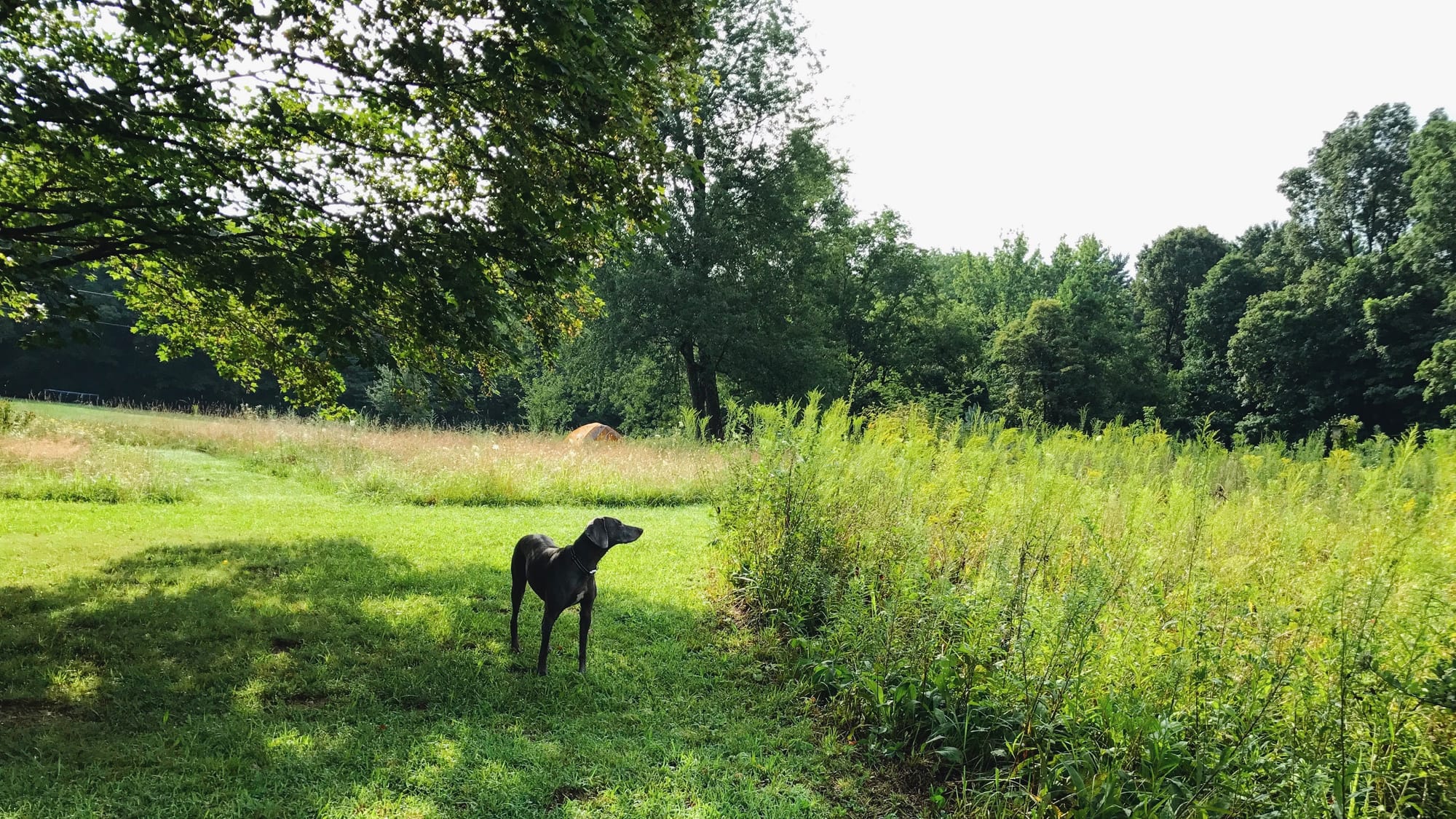
1:30 // "This perspective comes from a book called Life Forward..."
As you'll hear in this chapter, this book – Life Forward, by Pamela D. McLean – was given to me by Artie Isaac, a dear friend and wonderful coach, when I was planning to leave my full-time job at Available Light Theatre.
I took it with me on a days-long retreat in Northfield, Ohio, up near Cuyohoga National Park. It was a funny kind of place. There was lots of space and light outside, but the room itself was pretty dark. I remember reading the book outside during the day, journaling and thinking deeply, but then getting kind of pessimistic and moody when I was inside at night.
Of course, the book told me that exactly that kind of moodiness was pretty standard for someone who was deep into The Doldrums. So maybe the environment was just accentuating what was already there.
2:06 // "The challenge is to find ways to shape your life..."
That's Blythe Coons reading from Life Forward.
Please note McLean's inclusion of "the experience of uncertainty." That experience gets a whole chapter of Ready for the Quest to itself, Chapter Eleven.
5:59 // "There are outer and inner mountains..."
Here's Whitney again, with more from Wherever You Go, There You Are by Jon Kabat-Zinn.
I deleted a big, long metaphor about mountains from the first chapter, so I had to include some mountains somewhere else.
When I'm not in the mountains, I'm usually wishing I was. When I arrive in the mountains – heck, even when just I'm in the car and the mountains are coming into view – my whole body reacts and I feel at peace. I'm sure there's a scientific explanation for it, but it's as good as magic to me.
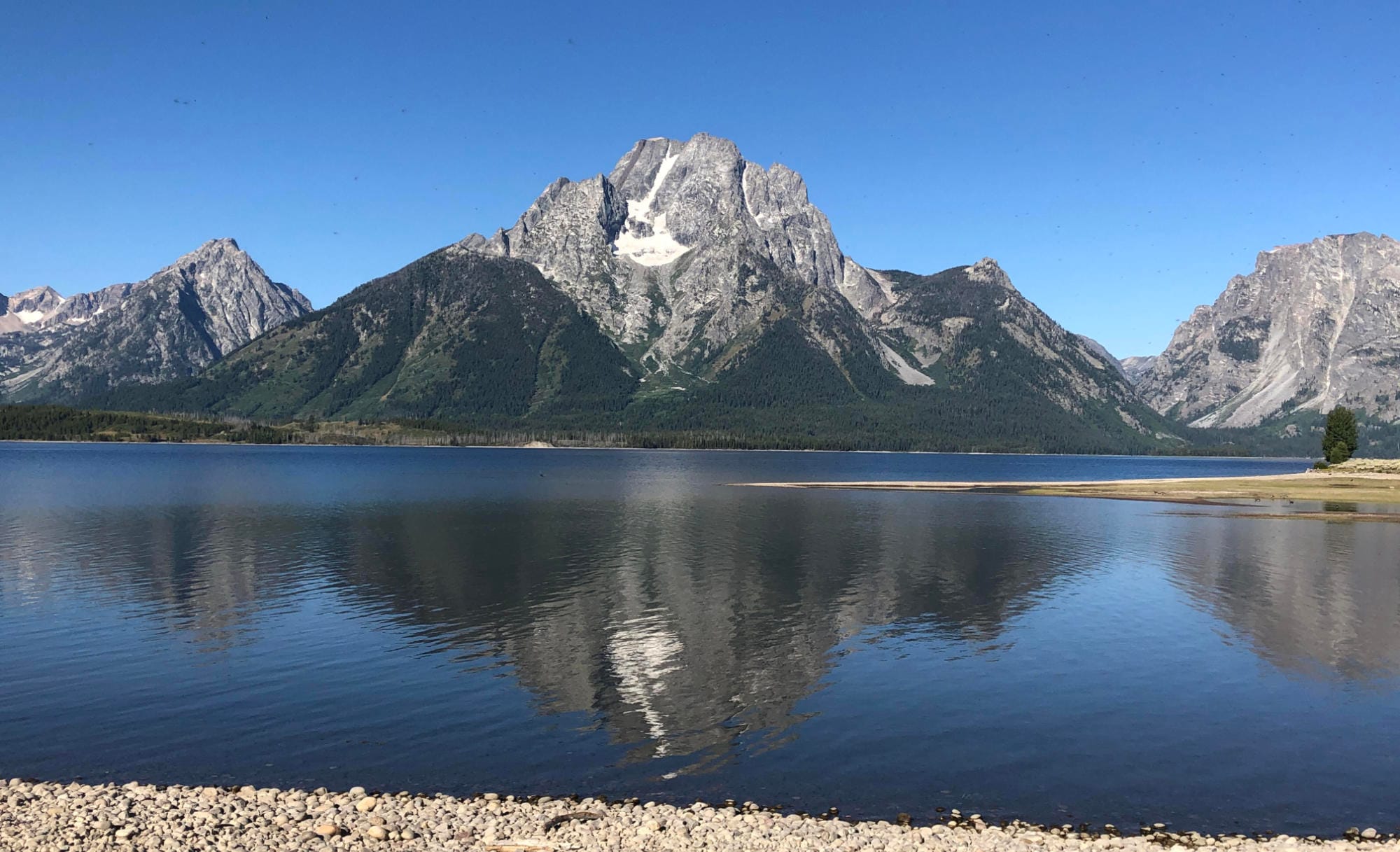
11:21 // "It took a serious effort, a huge commitment..."
I continue to wrestle with this and I know it's a challenge for other people as well, especially those who have a powerful drive for achievement. It often takes much less mental energy to choose "getting things done" in lieu of getting good, useful rest.
We're going to talk about myelination in the next chapter, which is one big reason this choice is so difficult. Long story short, your brain is well-accustomed to choosing activity over non-activity, so choosing rest, recovery, stillness, and not achieving takes a great deal of deliberate effort. (And that's just the unconscious part of it. I'm not even taking account of all the reasoning you might use to convince yourself that rest is a bad idea.)
Here's a question to ask yourself. Which would be more productive in the long run: five days of work from the exhausted, burned out, overwhelmed, blinkered version of you; or four days of work from a calmer, more rested, more balanced, healthier version of you? If you take one day to rest, you might even enjoy those four days of work.
Please accept my apologies. I am vastly oversimplifying and generalizing here. This is a big topic that deserves way more than just a footnote. In fact, it might be the subject of my next big project. The whole time I was writing this book – which encourages you to do big things – I was aware that it begs for a companion book, one which encourages you to do less, sometimes.
Maybe this is a good time to mention Katherine May's Wintering book again, as well as How to Do Nothing by Jenny Odell.
12:01 // "I played some video games..."
I played a lot of Dark Souls – 1, 2, and 3 – in the cocoon. Another thing I want to write will be about the Dark Souls series of games and why it's so comforting for people who are feeling down. I know I'm not alone in experiencing this. YouTube is full of videos about it. I think it's something to do with providing optimism and something to do with mastery experiences and a lot to do with the immersion. Well, I'll go on and on about that another time.
22:13 // "Perhaps you've heard of Marshall Goldsmith's book..."
One of Marshall Goldsmith's books is What Got You Here Won't Get You There: How Successful People Become Even More Successful. I have not read this book, but I quote the title all the time because it's a lesson that almost everybody needs to learn at some point. I certainly did. In fact, it's on the list of lessons that I have to keep learning over and over →
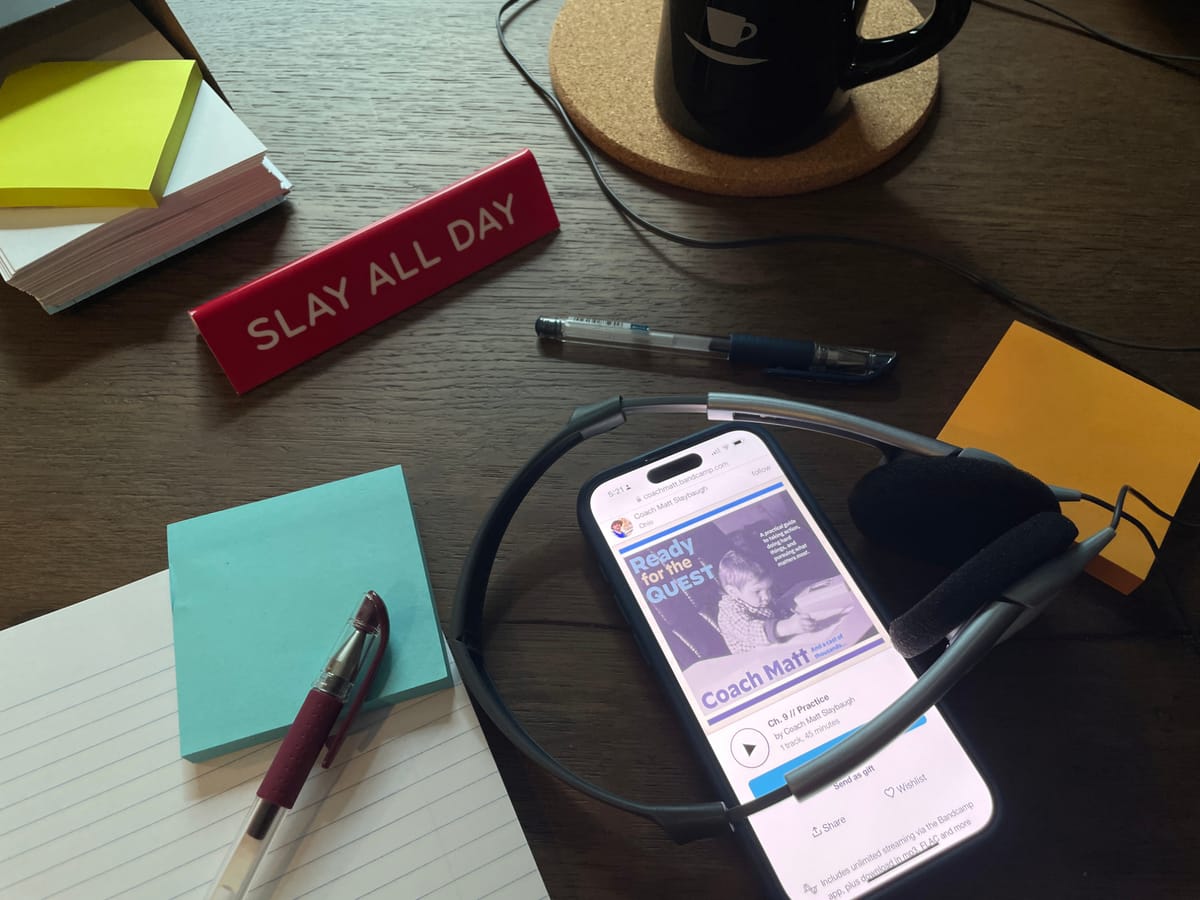
I am just now noticing that Goldsmith has a pretty new book, from 2022, called The Earned Life: Lose Regret, Choose Fulfillment. It's a fifteen year gap between those two books. I wonder what lessons he learned along the way.
17:32 // "I played the saddest, loneliest game I could think of..."
Shadow of the Colossus (Director and Lead Designer: Fumito Ueda.) is Exhibit A in the case people make about video games being art. (I don't think that's something that needs to be litigated anymore, but perhaps you get my point.)
Why is that sad and lonely stories are so comforting when I'm feeling sad and lonely? As I mentioned above, I intend to dig into this at some point.
19:04 // "Some periods of our growth are so confusing..."
James Clear came through for me again.
This is journalist Mya Frazier reading the words of Alice Walker, from Living by the Word. You've probably heard of The Color Purple or We Are the Ones That We Have Been Waiting For.
20:30 // "Are you able to come to a stop..."
Here's Whitney again, with more from Wherever You Go, There You Are by Jon Kabat-Zinn.
This is on page 12, at the end of a section called "Stopping." Like all the passages I've included in this chapter, it's something I circled or highlighted when I first read the book. It's pretty wonderful to open it up here and now, ten years later, and find that my younger self has provided exactly what I need.
Addendum // Cocooning: A Much Shorter Version
Here's a little something I said in an interview a couple of weeks ago.
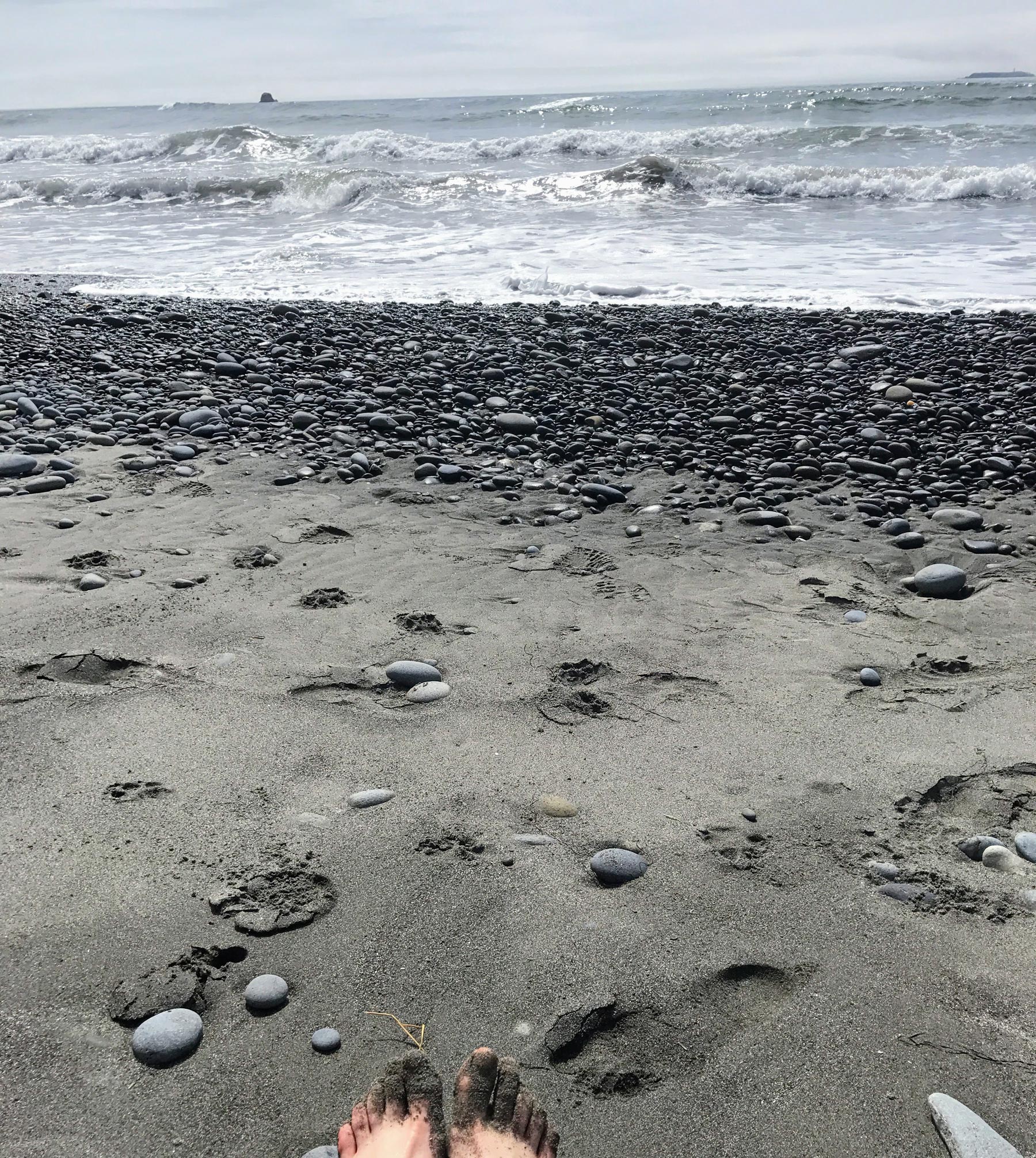
Is it possible that you can find 30 minutes when you can stop trying to be the person that you think the world wants you to be, and just be who you are?
That's the shortest, simplest explanation of cocooning I've (yet) come up with. It's probably true that most people cannot retreat in the way that McLean recommends and that I've been so fortunate to experience. But any time you can devote to this practice – whether it's 30 minutes or 30 days – will make a difference. And, I believe, the more you cocoon, the more you'll value it and want to do it more.
